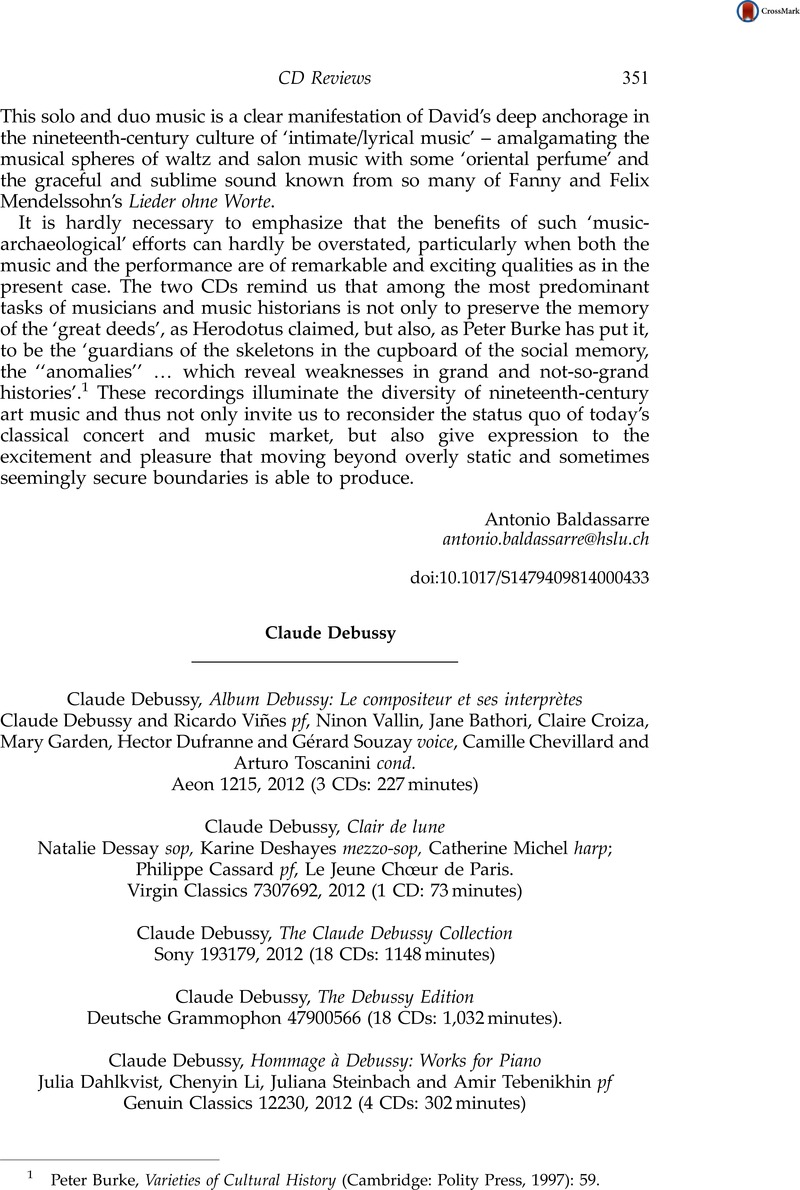No CrossRef data available.
Published online by Cambridge University Press: 19 December 2014

1 The chapter ‘Early Recordings: Their Value as Evidence’, in Neal Peres Da Costa's Off the Record: Performing Practices in Romantic Piano Playing (Oxford: Oxford University Press, 2012), offers a thoughtful discussion of these and related issues.
2 Plaskin, Glenn, Horowitz: A Biography of Vladimir Horowitz (New York: William Morrow and Company, 1983): 386 Google Scholar.
3 Monsaingeon, Bruno, Sviatoslav Richter: Notebooks and Conversations, trans. Stewart Spencer (Princeton: Princeton University Press, 2001): 121 Google Scholar.
4 Garden, Mary and Biancolli, Louis, Mary Garden's Story (New York: Simon and Schuster, 1951): 62 Google Scholar.
5 For insight into the song literature and its performance, I cannot recommend too highly Bergeron's, Katherine Voice Lessons: French Mélodie in the Belle Epoque (Oxford: Oxford University Press, 2010)Google Scholar.
6 Letter of 7 June 1917 to Robert Godet in Debussy Letters, selected and edited by François Lesure and Roger Nichols, translated by Roger Nichols (Cambridge, MA: Harvard University Press, 1987): 327.
7 The correct reading is given in Songs of Claude Debussy, Volume I: High Voice, edited by James R. Briscoe (Milwaukee: Hal Leonard, 1993): 88.
8 Letter of 1 September 1915 to Jacques Durand in Debussy Letters, 301–2.
9 Durand, Jacques, Quelques souvenirs d'un éditeur de musique, 2 vols. (Paris: A. Durand et fils, 1924–25)Google Scholar: vol. 1, 74, as translated by Naomi Shohet with Osostowicz, Krysia and Howat, Roy in Jean-Jacques Eigeldinger, Chopin: pianist and teacher as seen by his pupils (Cambridge: Cambridge University Press, 1986): 103 Google Scholar. Likewise, Marguerite Long commented in her At the Piano with Debussy, translated by Olive Senior-Ellis (London: J. M. Dent and Sons, 1972): 13, that one of Debussy's ‘most frequent sayings’ was ‘one must forget that the piano has hammers’.